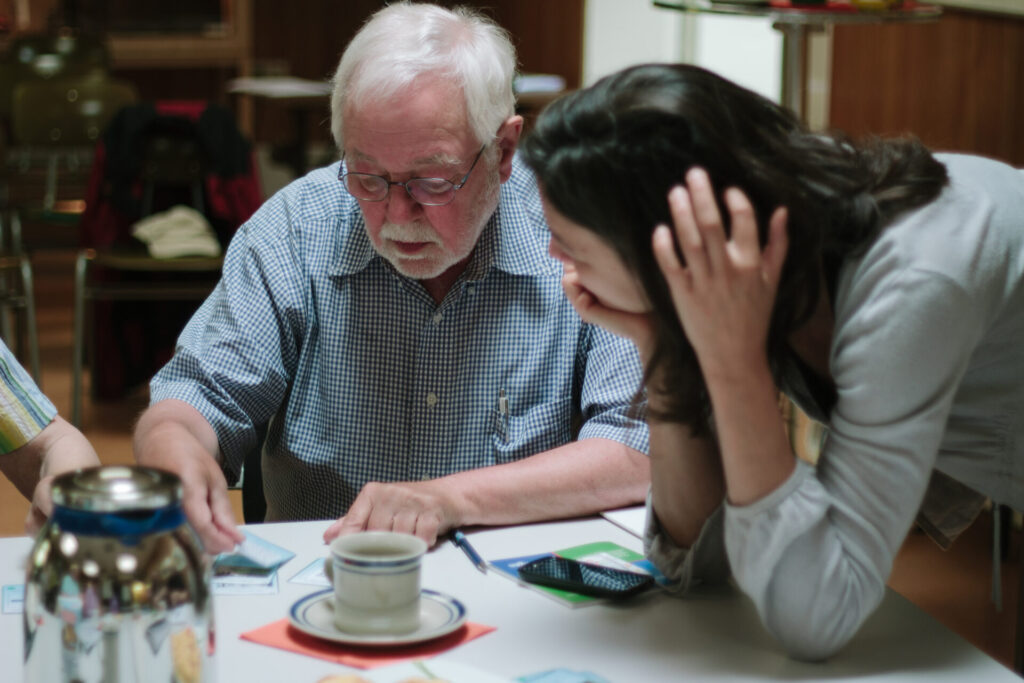
- Duration: 2016 – 2019
- Project lead: Dr. Juliane Jarke
Project management: Dr. Juliane Jarke (ZeMKI-Lab “Sociotechnical Systems and Critical Data Studies”)
Research association/cooperation: Institute for Information Management Bremen (ifb)
Funding institution: EU Horizon2020
MobileAge was a three-year Horizon2020 project of the European Commission to contribute to the development of mobile-based, open administrative services for seniors to strengthen their public participation. A participatory design approach was pursued, which was intended to give seniors a substantial creative space. The focus was on the creation of open services through participatory production and use of open data.
In fall 2015, the project application for “MobileAge”, a three-year Horizon2020 project of the European Commission, was approved. As a partner of ZeMKI, the Institute for Information Management Bremen (ifb) is part of the international consortium with partners in the UK, Belgium, Norway, Spain, Greece and Germany. The focus of MobileAge was the combination of open data, mobile technologies and open services for Europe’s senior citizens. The proportion of senior citizens in Europe’s population is growing steadily and is expected to reach around 28% by 2020. However, their access to information and communication technologies and infrastructures is limited, while at the same time more and more administrations are making their services available via digital platforms. This poses risks in terms of the opportunities for seniors to participate in society and live independently for as long as possible. MobileAge aims to contribute to the development of mobile-based, open administrative services for senior citizens in order to strengthen their public participation. We pursue a participatory design approach that gives seniors a substantial creative space. The focus is on the creation of open services through participatory production and use of open data.
This is achieved through four objectives:
1. exploring and implementing innovative formats to support seniors in accessing and using open services through personalized mobile technologies;
2. developing and implementing participatory design formats and methods to effectively engage seniors in the production and use of open data;
3. developing a situational, practice-oriented understanding of mobility, access to and usability of open government services by seniors
4. developing an impact framework to evaluate participatory design approaches to open government services.
MobileAge was carried out in cities and regions where innovative projects on citizen participation already existed: Bremen, South Lakeland, Zaragoza and the Central Macedonia region. The different scenarios for concrete development included topics such as social inclusion, self-determined living, data provision and processing for a safer and more accessible city and the management of personal health data. In MobileAge, innovative methods and processes for co-designing open administrative services were developed and evaluated, as well as technical mobile applications. Dr. Juliane Jarke (ifb) led the work package on method innovation.

